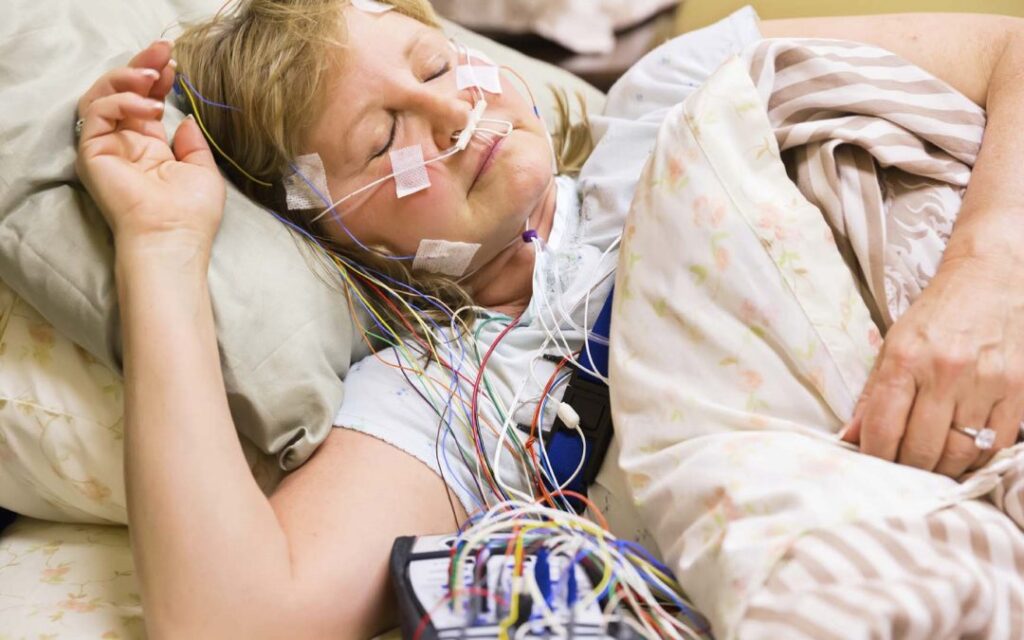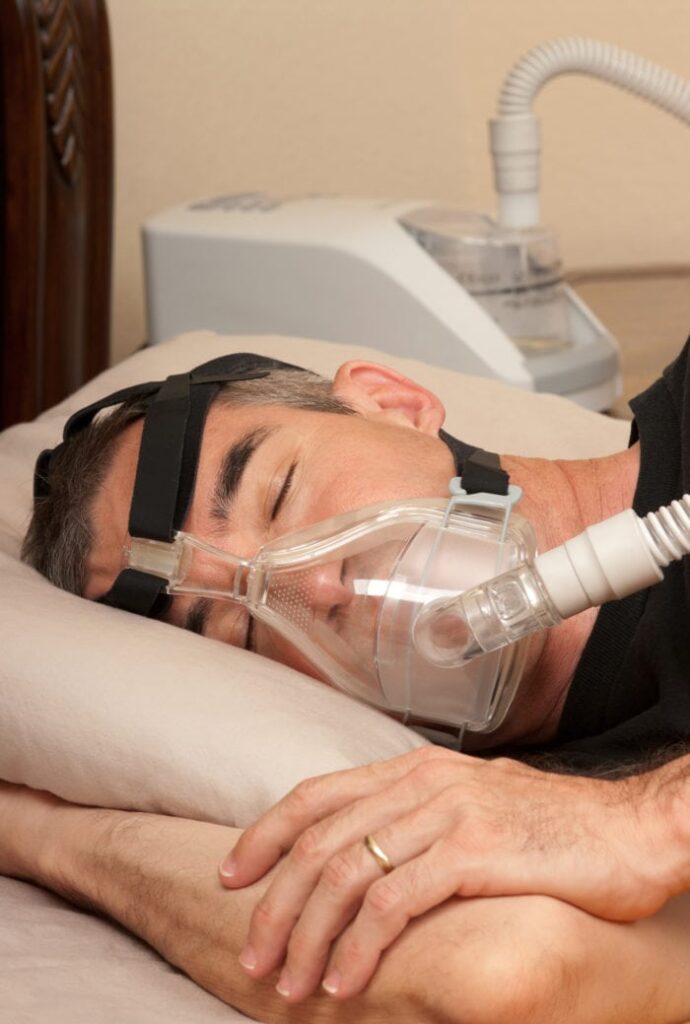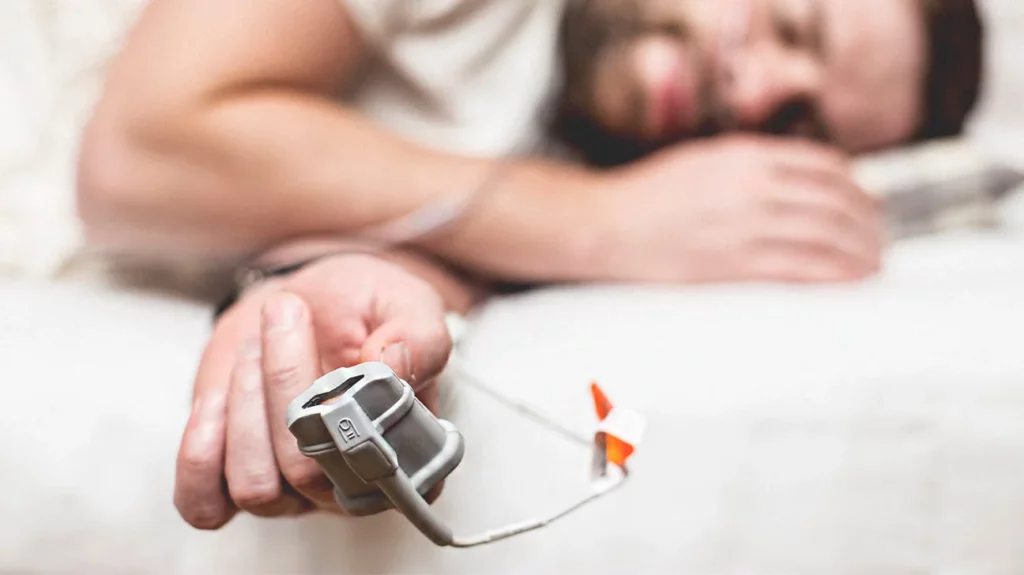Sleep plays a crucial role in our overall health and well-being. Quality sleep is essential for proper cognitive function, emotional well-being, and physical health. However, in today’s fast-paced world, many individuals struggle with sleep-related issues that can negatively impact their daily lives. Thankfully, advancements in the field of sleep medicine have led to innovative solutions, such as home-based sleep studies, that offer convenience and comfort while assessing sleep health.
Understanding the Importance of Sleep Health
Sleep is not just a passive state of rest; it is an active process that allows our bodies to recharge and repair. Adequate sleep contributes to better concentration, memory retention, and overall cognitive performance. Furthermore, sleep plays a crucial role in regulating hormones, boosting immune function, and supporting cardiovascular health.
Home based sleep study typically involve the use of portable monitoring devices that individuals can set up themselves. These devices are equipped with sensors that track key sleep parameters, such as breathing patterns, oxygen levels, and movement during sleep. The data collected from these home-based studies can provide valuable insights into a person’s sleep patterns and help diagnose various sleep disorders.
When we sleep, our bodies undergo various essential processes that help us function optimally. During the deep stages of sleep, our brain consolidates memories and processes information from the day. This is crucial for learning and cognitive function. Additionally, sleep is the time when our bodies repair tissues, synthesize proteins, and release growth hormones. These processes are essential for muscle growth, tissue repair, and overall physical health.
The Connection Between Sleep and Overall Health
Research has shown that chronic sleep deprivation can increase the risk of several health conditions, including obesity, diabetes, heart disease, and mood disorders. Sleep deprivation can also impair immune function, leading to a higher susceptibility to infections and slower recovery.
Moreover, inadequate sleep has been linked to an increased risk of mental health issues such as anxiety and depression. The lack of quality sleep can disrupt the balance of neurotransmitters in the brain, affecting mood regulation and emotional well-being. It is essential to prioritize good sleep hygiene to support both physical and mental health.

Common Sleep Disorders and Their Impact
Various sleep disorders can disrupt the quality and quantity of sleep. Conditions such as insomnia, sleep apnea, restless leg syndrome, and narcolepsy can significantly impact an individual’s sleep health and overall well-being. Identifying and treating these sleep disorders is vital for maintaining optimal sleep health.
Individuals suffering from sleep disorders may experience daytime fatigue, irritability, and difficulty concentrating. These symptoms can significantly impair daily functioning and quality of life. Seeking medical help and implementing lifestyle changes can greatly improve sleep quality and overall health outcomes.
The Evolution of Sleep Studies
In the past, diagnosing sleep disorders required overnight stays in sleep centers where individuals would be monitored by a team of specialists. While these traditional sleep studies yielded valuable insights, they were often associated with inconvenience, discomfort, and high costs.
As technology continues to advance, the field of sleep medicine has witnessed a significant transformation. Researchers and healthcare providers are constantly exploring new methods to improve the diagnosis and treatment of sleep disorders. Learn more about Sleep Study Test: Understanding the Importance of Sleep Assessments visit at https://freeeye.net/sleep-study-test-understanding-the-importance-of-sleep-assessments/.
Traditional Sleep Studies: An Overview
Traditional sleep studies, also known as polysomnography, involve monitoring various physiological parameters during sleep. These studies typically take place in specialized sleep laboratories and require individuals to spend a night away from their homes.
During a traditional sleep study, patients are connected to a variety of sensors that monitor brain activity, eye movements, muscle tone, heart rate, and breathing patterns. This comprehensive approach provides clinicians with valuable data to assess the quality and quantity of a patient’s sleep.
The Rise of Home-Based Sleep Studies
With advancements in technology, home-based sleep studies have emerged as a more convenient alternative to traditional sleep studies. Home-based sleep studies allow individuals to undergo a comprehensive sleep assessment from the comfort of their own homes, reducing the inconveniences associated with overnight stays at sleep centers.
The Process of Home-Based Sleep Studies
Home-based sleep studies involve the use of portable sleep monitoring devices that individuals can utilize in their own bedrooms. These devices are designed to collect data on various parameters during sleep, such as breathing patterns, oxygen levels, brain activity, and body movements.
Participating in a home-based sleep study offers individuals the convenience of undergoing a sleep assessment in the comfort of their own homes. This can lead to more accurate results as individuals are in their natural sleep environment, potentially reducing any anxiety or discomfort that may arise in a clinical setting. Learn more about oxygen levels click here.
Equipment Used in Home-Based Sleep Studies
The equipment used in home-based sleep studies typically includes a small device attached to the individual’s body, which records the necessary data. This device may include sensors that monitor breathing, heart rate, oxygen saturation, and body position.
In addition to the wearable monitoring device, some home-based sleep studies may also incorporate video recording capabilities to observe any physical movements or behaviors during sleep. This multi-faceted approach provides a comprehensive overview of an individual’s sleep patterns and can aid in diagnosing various sleep disorders.
The Procedure of Conducting a Sleep Study at Home
To conduct a home-based sleep study, individuals are provided with detailed instructions on how to set up the monitoring device before going to bed. They may also be required to complete a sleep diary to provide additional information about their sleep patterns and habits.
Furthermore, individuals undergoing a home-based sleep study are encouraged to maintain their regular bedtime routine to ensure that the data collected is representative of their typical sleep patterns. This includes avoiding stimulants like caffeine close to bedtime and creating a comfortable sleep environment free of distractions to promote natural sleep behavior.
The Benefits of Home-Based Sleep Studies
Home-based sleep studies offer several advantages over traditional in-lab studies, making them a more attractive option for individuals seeking a sleep assessment.
Convenience and Comfort in Home-Based Sleep Studies
One of the primary benefits of home-based sleep studies is the convenience they offer. Individuals can sleep in their own beds, reducing the discomfort and anxiety associated with being in an unfamiliar sleep center. This setup provides a more accurate representation of their regular sleeping environment and allows for a more natural sleep experience.
Furthermore, being in the comfort of their own home can lead to more accurate results as individuals are more likely to exhibit their typical sleep patterns and behaviors. This can provide healthcare professionals with valuable insights into their sleep quality and help diagnose any potential sleep disorders more effectively. Learn more about potential sleep disorders visit at https://my.clevelandclinic.org/health/diseases/11429-sleep-disorders.

Cost-Effectiveness of Home-Based Sleep Studies
Home-based sleep studies are generally more cost-effective compared to traditional in-lab studies. By eliminating the need for an overnight stay in a sleep center, individuals can save on expenses related to accommodation and facility fees. This increased affordability ensures that sleep assessments are more accessible to a wider range of individuals.
In addition to saving on accommodation costs, home-based sleep studies also eliminate the need for travel expenses to and from a sleep center. This not only reduces the financial burden on individuals seeking a sleep assessment but also minimizes the time and effort required to attend multiple appointments, making the process more convenient and efficient.
Interpreting the Results of a Home-Based Sleep Study
Once a home-based sleep study is completed, the collected data is analyzed by qualified sleep specialists to provide a comprehensive evaluation of an individual’s sleep health.
Home-based sleep studies have become increasingly popular due to their convenience and effectiveness in monitoring sleep patterns. The data collected from these studies is meticulously examined by sleep specialists who look for various indicators such as sleep stages, movement patterns, and breathing irregularities. This detailed analysis helps in identifying potential sleep disorders and crafting personalized treatment plans for individuals.
Understanding Sleep Study Data
The data collected during a home-based sleep study provides valuable insights into an individual’s sleep patterns, oxygen levels, breathing irregularities, and other parameters. Sleep specialists can interpret this data to diagnose sleep disorders and develop an appropriate treatment plan.
Moreover, advancements in technology have enhanced the accuracy and reliability of home-based sleep study devices, ensuring that the data obtained is comprehensive and precise. This technological evolution has streamlined the process of diagnosing sleep disorders and has made it more accessible to individuals seeking to improve their sleep quality.
Next Steps After a Home-Based Sleep Study
Following a home-based sleep study, individuals will have a consultation with a sleep specialist to discuss the results and any necessary treatment options. This step allows individuals to receive personalized recommendations and interventions tailored to their specific sleep needs.
Furthermore, the collaboration between patients and sleep specialists post-study is crucial in monitoring progress, adjusting treatment plans if needed, and ensuring long-term sleep health. This ongoing support and guidance play a vital role in helping individuals achieve restful and rejuvenating sleep.In conclusion, home-based sleep studies offer a convenient and comfortable solution for assessing sleep health. With their ability to provide accurate data in a familiar environment, these studies have revolutionized the field of sleep medicine. By diagnosing and treating sleep disorders, home-based sleep studies contribute to improving overall health and well-being.

